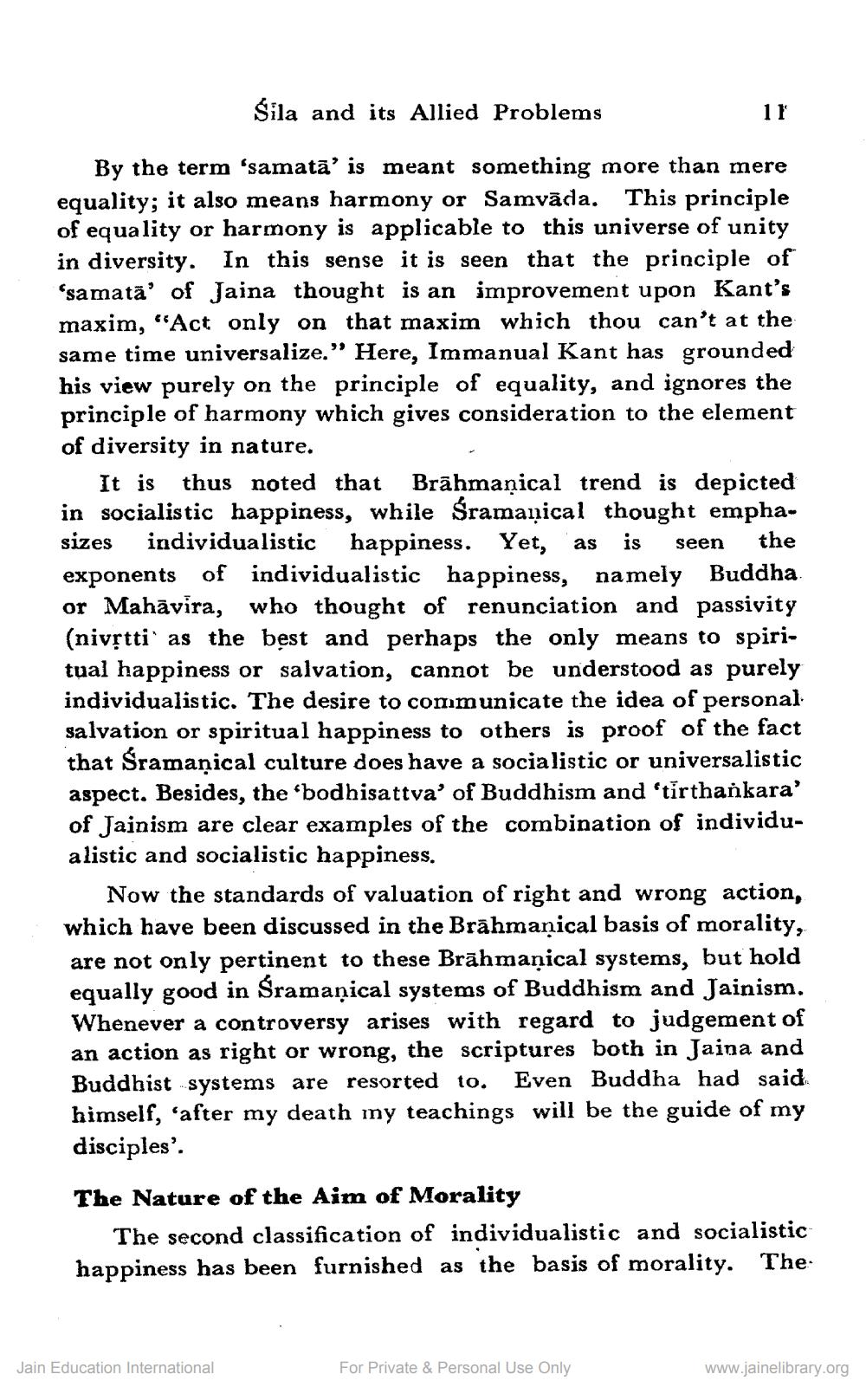________________
Sila and its Allied Problems
11
By the term 'samatā' is meant something more than mere equality; it also means harmony or Samvāda. This principle of equality or harmony is applicable to this universe of unity in diversity. In this sense it is seen that the principle of 'samatā' of Jaina thought is an improvement upon Kant's maxim, "Act only on that maxim which thou can't at the same time universalize." Here, Immanual Kant has grounded his view purely on the principle of equality, and ignores the principle of harmony which gives consideration to the element of diversity in nature.
It is thus noted that Brāhmaṇical trend is depicted in socialistic happiness, while Śramaņical thought emphasizes individualistic happiness. Yet, as is seen the exponents of individualistic happiness, namely Buddha or Mahāvira, who thought of renunciation and passivity (nivștti' as the best and perhaps the only means to spiritual happiness or salvation, cannot be understood as purely individualistic. The desire to communicate the idea of personal salvation or spiritual happiness to others is proof of the fact that Šramanical culture does have a socialistic or universalistic aspect. Besides, the bodhisattva' of Buddhism and 'tirthankara' of Jainism are clear examples of the combination of individualistic and socialistic happiness.
Now the standards of valuation of right and wrong action, which have been discussed in the Brāhmanical basis of morality, are not only pertinent to these Brāhmaṇical systems, but hold equally good in Śramaņical systems of Buddhism and Jainism. Whenever a controversy arises with regard to judgement of an action as right or wrong, the scriptures both in Jaina and Buddhist systems are resorted to. Even Buddha had said himself, 'after my death my teachings will be the guide of my disciples'.
The Nature of the Aim of Morality
The second classification of individualistic and socialistic happiness has been furnished as the basis of morality. The
Jain Education International
For Private & Personal Use Only
www.jainelibrary.org




